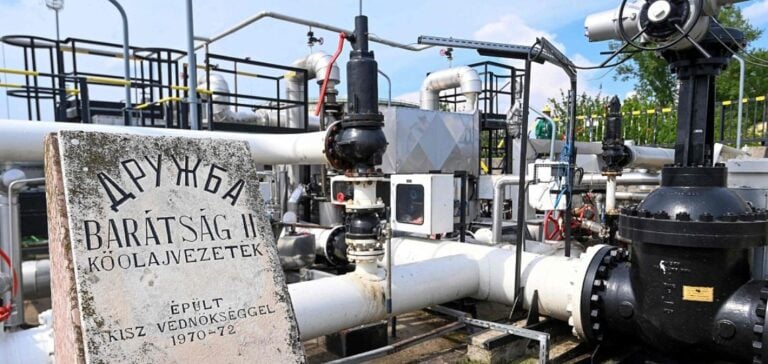Ukraine, through Mykhaïlo Podoliak, advisor to President Volodymyr Zelensky, adjusts its communication after an initial statement announcing the end of Russian oil transit via the Droujba pipeline from January 1, 2025.
In a recent statement, Podoliak confirms that Kyiv will continue to fulfill its contractual obligations towards its European partners, putting an end to speculation about a possible interruption.
This rectification is crucial in a context where energy flows in Europe, particularly those from Russia, are under close scrutiny.
The Druzhba pipeline, built in the 1960s, is a strategic route for transporting Russian oil to several Central European countries.
This network of almost 9,000 kilometers links Russia to Germany and Central Europe via Poland and Belarus.
It remains a key source of supply for countries such as Hungary and Slovakia.
Despite European Union sanctions against Russia following the invasion of Ukraine, Druzhba has benefited from certain exemptions, enabling countries to maintain their oil imports.
Tensions between Kiev, Budapest and Bratislava
Podoliak’s initial statements on a possible interruption provoked immediate reactions in Hungary and Slovakia, two countries that rely heavily on oil transported via Droujba.
Hungary, led by Prime Minister Viktor Orban, known for his often divergent positions towards the European Union, expressed concern about the reliability of its energy supplies.
Slovakia, also dependent on this flow, fears potential disruptions that could affect its economy.
Both countries have already accused Ukraine of hindering the transit of oil destined for their markets, accusations which Kiev firmly rejects. Faced with these concerns, Budapest and Bratislava have asked the European Commission to intervene, requesting urgent consultations to address the situation.
However, the Commission considers these requests unfounded, arguing that the flow of oil through the pipeline does not justify further discussions at this stage.
This position highlights the differences within the EU over the management of energy relations with Kiev and Moscow, at a time when energy policies are being redefined in the context of the war in Ukraine.
Diversification strategies and regional alternatives
In response to the uncertainty surrounding the future of supplies via Droujba, several European countries are stepping up their energy diversification initiatives.
The Czech Republic, for example, is investing in the extension of the Transalpine pipeline (TAL), which provides direct access to oil from Italy and Germany.
This alternative infrastructure aims to reduce dependence on Russian imports and improve energy security in a region sensitive to disruptions in oil flows.
The expansion of the TAL pipeline is part of a wider trend within the European Union to reduce dependence on Russian hydrocarbons.
However, for countries like Hungary and Slovakia, rapidly diversifying their supplies remains a complex task.
Their historical dependence on Russian resources, combined with specific political ties, makes the transition to other sources more difficult and slower.
Implications for European energy security
The continuing uncertainty surrounding oil supplies from the Druzhba pipeline is forcing EU countries to reassess their energy strategies.
While some, like the Czech Republic, are taking concrete steps to diversify their flows, others, like Hungary, find themselves at a crossroads between their immediate energy needs and their political positioning within the EU.
At the same time, the January 2025 deadline for the potential cessation of Russian gas transit via Ukraine adds a further dimension to the region’s energy equation.
European governments need to anticipate potential impacts and adjust their strategies to maintain a balance between energy security, political commitments and economic stability.
Discussions surrounding the future of the Druzhba pipeline and Central Europe’s energy relations with Kiev illustrate the complexity of the current situation.
Each country must weigh its decisions carefully, knowing that the choices made today will determine their long-term energy security and resilience in the face of geopolitical shocks.






















